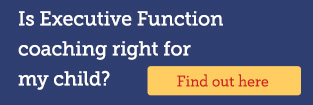As parents, we wish that our influence or our authority could always result in instant and lasting changes to our children’s behavior or outlook. Sometimes, real changes, the kind of changes that matter and create lasting habits, are changes that our children see a need for, initiate, and make their own. Other times, children need a coach to help guide them through the change process.
children’s behavior or outlook. Sometimes, real changes, the kind of changes that matter and create lasting habits, are changes that our children see a need for, initiate, and make their own. Other times, children need a coach to help guide them through the change process.
Let's look at a common problem we hear about from many parents: kids spending endless hours on video games or social media. When a mom or dad says, “Peter, I am so tired watching you glued to your computer screen when your friends are outside playing,” this triggers some powerful thoughts and emotions for Peter. Why? Because Peter likely has no desire to change his behavior, while his parents want action now. This disconnect can cause enormous friction between parents and kids, so it's helpful to dig deeper into the nature of behavior change to gain a clearer perspective on this problem.
Research tells us that change is a process that has several predictable stages. It's not as simple as black or white; do it or don't do it; human beings are wonderfully complex creatures and these stages reflect those shades of gray that are inherent in changing any habit. Consider your own experience with change. For instance, on your way to deciding to strap on that Fitbit and get your 10,000 steps a day, it's likely that you went through a series of changes in your mindset that made it possible. See if you can recognize your own path to change in the stages and examples below:
Precontemplation- No, I am not interested in discussing this. It’s not anything I need to change. (That’s Peter in the earlier scenario.)
Contemplation- I will think about changing my behavior.
Preparation- I wonder what I have to do to plan for making this change?
Action- I’m trying; I am changing my behavior now. (Peter’s parents are ready for action, for example.)
Maintenance- I have a new habit that takes the place of the old behavior.
Generalization- What can I learn from this change and how I can possibly change in other ways?
Our students travel through these stages as they consider changing how they manage their academic demands, as well. As Executive Function coaches, we are attuned to the language students use to describe their attitude toward changing. We look for clues to help us understand what stage they are at along the way toward building new habits. Consider the following examples of what parents may hear that help identify what stage of change a child may be in:
When a parent says, “Peter, you should stop playing video games and play outside with your friends,” here are what his possible responses tell us about his mindset toward changing that behavior:
| Peter’s Response | The Child’s Behavior Change Mindset |
| “Mom, I love this game! PLeeease, get off my case.” | Precontemplation |
| “But, Dad, I’m almost at the next level... Who’s outside? I guess I could save my progress.” | Contemplation |
| “Let me just finish this level and I’ll put on my sneakers.” | Preparation |
| “Okay, I’ll check out what they’re doing outside, but if it’s boring I’m coming back in.” | Action (early stage) |
| “Hey Mom and Dad, I know you are worried, but I’m only going to play for 15 minutes, and then I’m meeting my friends outside.” | Action to Maintenance |
| “I’m going to reward myself with a 15 minute video game break after I finish my project.” | Generalization |
As Executive Function coaches, we have found that these are difficult, often emotionally charged conversations for any parents and their children. It’s challenging to give up video games and social media, and similarly it’s often hard to change an ingrained, but ineffective, study habit. Coaches recognize and help their students increase the awareness of their mindset stage. We acknowledge with students that change happens in stages and then we use strategic approaches to help them to consider the benefits of a shift in their thinking, feelings and actions. Simply considering a shift may help the student to open his or her mind to new possibilities. We have found that engaging in a process that acknowledges the challenges of changing behavior, invites students to consider new strategies, and encourages experiments to try new approaches is a pathway to meaningful and lasting change. And that’s probably what Peter’s parents are hoping for too.
As part of our intake process, we determine what stage of behavior change our child is in. For in home coaching, we can work with your child regardless of what stage he or she is in. For online academic coaching, we generally find that kids who are in contemplation or action stages are the best candidates for coaching.
Please click below for a free consultation to find out how Executive Function coaching can help your child.
photo credit: The cousins play so well together via photopin (license)

While pursuing his Master’s in Education at Clark University, Neal supervised student teachers and did extensive research and in-school support of alternative school models within the Newton public schools and the Worcester public schools in Massachusetts. Prior to joining Beyond BookSmart, Neal was a middle and high school special education teacher and a Student Support Services Director within public and private schools. Neal has also been a co-founder and director of several special and alternative schools in the Greater Boston area.

